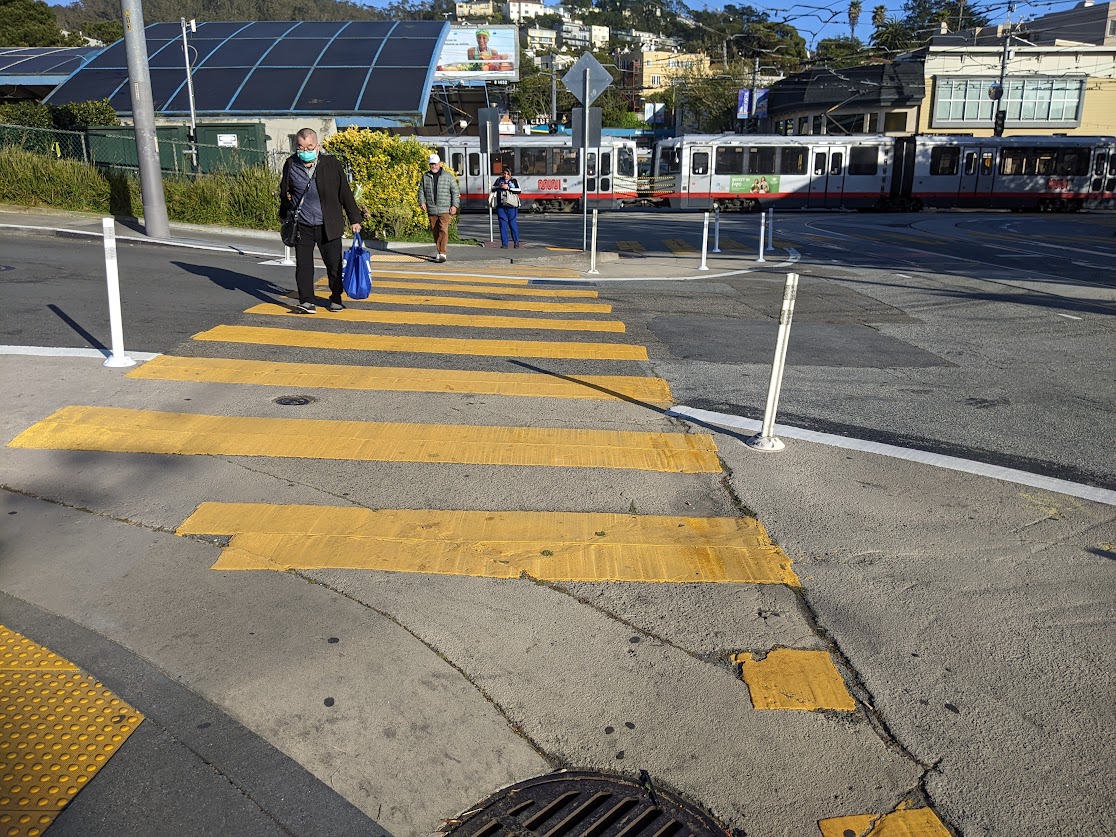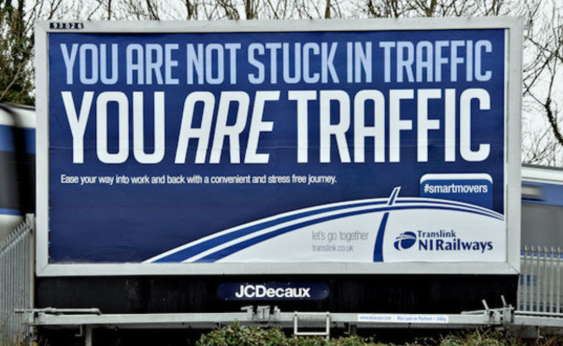Obama Calls For Better Regional Planning Measures in TEA Reauthorization
1:03 PM PST on February 18, 2009
 The vision of an unsustainable land use and transportation future
The vision of an unsustainable land use and transportation futureFile the following in the "Can't Believe My President Gets It" category.
In an interview with columnists last week on Air Force One, President Obama drew a clear link between regional planning, land use, transportation, and energy policy, implying that bad planning has led to an increase in vehicle miles traveled (VMT) and commute times, which negatively impacts the environment. He also suggested that USDOT Secretary Ray LaHood should consider changing the highway and transit spending ratios in the Transportation Equity Act (TEA).
In response to a question about infrastructure spending in the stimulus and anticipation of addition infrastructure spending in the future, the president said the following:
Well, number one, we’ve got the transportation reauthorization bill that’s going to be coming up. So one thing to keep some perspective about on the recovery package is this is supposed to provide a jolt to the economy above and beyond what we’re doing already in the federal budget. And so I expect that Secretary LaHood, working with the various transportation committees, is going to be moving forward on a transportation bill. I would like to see some long-term reforms in how transportation dollars flow, and I’ll give you just a couple of examples. I think right now we don’t do a lot of effective planning at the regional level when it comes to transportation. That’s hugely inefficient. Not only does it probably consume more money in terms of getting projects done, but it also ends up creating traffic patterns, for example, that are really hugely wasteful when it comes to energy use.
If we can start building in more incentives for more effective planning at the local level, that’s not just good transportation policy, it’s good energy policy. So we’ll be working with transportation committees to see if we can move in that direction.
Metropolitan Transportation Commission (MTC) Spokesman Randy Rentschler was thrilled to hear the President make the connection and said that the above sounded like something they would've written in the Regional Transportation Plan (RTP) for the Bay Area.
I think that it's inspirational to hear that from the president on a subject that while near and dear in our hearts is often lost in the very large agenda that he and Congress have. When you talk about climate change and suggest changing light bulbs or turning down the heat, people get it. When you talk about changes to our transportation life, people don't make the connection. Vehicles are the largest producer of CO2 regionally and in the state and this really gets at the way we live, the issue of proximity, which is a much larger problem of how far we are from our jobs and how much we have to drive.
House Speaker Nancy Pelosi last year said that alternative fuels and cleaner vehicles are not enough to solve our energy and environmental problems, that reducing VMT was vital to our transportation, land use, and energy priorities:
But it is not enough to improve vehicle efficiency and promote biofuels. We must also address total ‘vehicle miles traveled,’ which are growing at two and a half times the rate of population growth. Already, public transit saves our nation 1.4 billion gallons of gasoline every year. The fuel savings from using transit are magnified when we add in the ‘smart growth’ that springs up around transit, especially rail transit stations. People use transit for more of their daily needs, such as running errands, and the nation saves 4.2 billion gallons of gasoline annually. In San Francisco alone, use of the Muni’s system results in an estimated 25 million gallons in oil savings.
So now we know they speak the right language, but will they deliver the goods with the reauthorization of TEA? The Streetsblog Network will be covering the machinations of the TEA political struggle and, like the stimulus package debate, will work with Transportation for America and partners to steer the transportation narrative toward proper municipal and transit funding.
Flickr Photo: Dan_DC
Stay in touch
Sign up for our free newsletter
More from Streetsblog San Francisco
SFMTA Starts West Portal Outreach
Agency presents plans to block traffic from crossing in front of the train station



